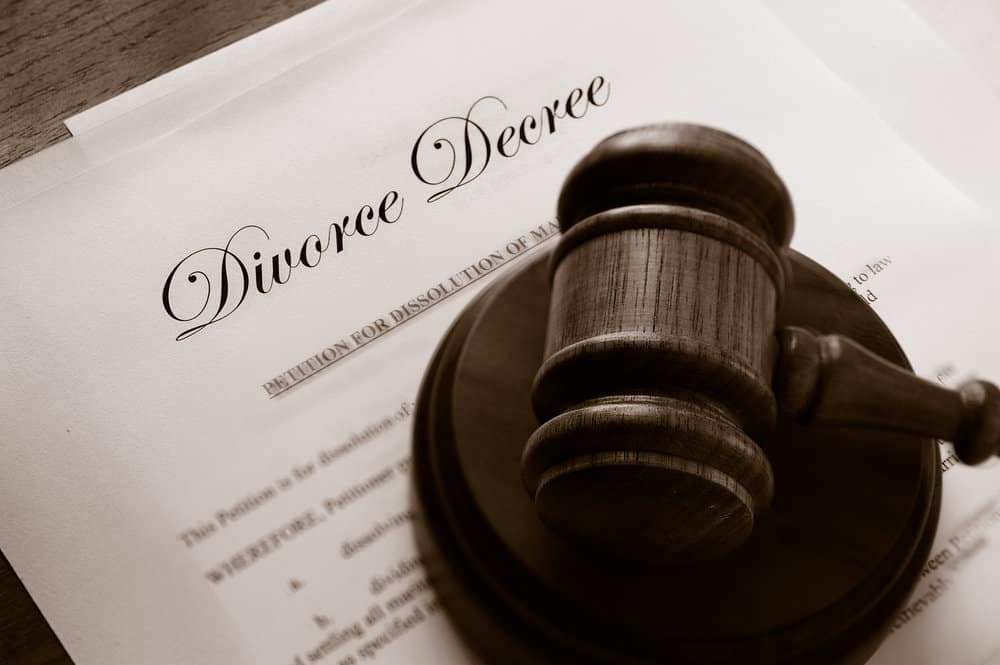After serving divorce papers to a spouse, many may feel relieved that the process has finally begun. However, this is the beginning of a long and often emotional journey. The next steps in the divorce process can vary depending on the situation, but there are some common steps that most people will need to take.
One of the first things that may happen after serving divorce papers is that the other spouse must respond. They may choose to contest or agree to the divorce, affecting how the process moves forward.
Additionally, both parties must gather financial documents and other information to prepare for negotiations about property division, child custody, and other important issues. This can be a difficult and time-consuming process, but it is essential to moving forward with the divorce.
What Is Divorce and How Does It Work?
The Divorce Process
Divorce is the legal process of ending a marriage. The process can vary depending on the state in which the divorce is filed. Generally, the process involves filing a divorce petition, serving the spouse with divorce papers, and attending a court hearing to finalize the divorce.
Filing for Divorce
One spouse typically files a divorce petition with the court to start the divorce process. This legal document outlines the grounds for divorce and requests that the court dissolve the marriage. The filing fee varies by state and can range from a few hundred to several thousand dollars.
Serving Your Spouse with Divorce Papers
After the divorce petition is filed, the other spouse must be served with divorce papers. This can be done in several ways, including by mail, a professional process server, or the county sheriff’s office. The spouse must respond to the divorce petition within a certain timeframe, usually 30 days.
The Divorce Complaint
The divorce complaint is a legal document that outlines the specific reasons the spouse seeks a divorce. It also requests that the court grant certain relief, such as child custody or spousal support.
The Answer
The answer is the spouse’s response to the divorce complaint. It may include a counterclaim, which is the spouse’s request for relief from the court.

The Default Judgment
If the spouse does not respond to the divorce petition within the required timeframe, the court may enter a default judgment in favor of the filing spouse. This means that the filing spouse may be granted the relief requested in the divorce petition without the other spouse’s input.
The Divorce Decree
The divorce decree is the final legal document that officially ends the marriage. It outlines the divorce terms, such as child custody, child support, and property division. The court may issue the divorce decree after a hearing or by agreement of the parties.
Divorce is a legal process that involves filing paperwork, serving the other spouse with divorce papers, and attending court hearings. The divorce process can be complex and may require legal representation. The outcome of a divorce is a decree that outlines the divorce terms.
What Happens After Your Spouse Is Served with Divorce Papers?
The Response
After being served with divorce papers, the spouse has a certain amount of time to respond. This is usually around 30 days. The response allows the spouse to agree or disagree with the divorce complaint. If the spouse agrees, the divorce can proceed as an uncontested divorce. If the spouse disagrees, it becomes a contested divorce, and the case will go to court.
The Court Hearing
If the divorce becomes contested, a court hearing will be scheduled. During the hearing, both spouses will have the opportunity to present their case to the judge. The judge will then decide on the issues that are being contested, such as child custody, property division, and alimony.

Child Custody and Support
Child custody and support are two important issues that are often contested in a divorce case. The court will consider the child’s best interests when deciding custody. Child support will be determined based on both parents’ income and the child’s needs.
Property Division
The division of marital property is another issue that is often contested in a divorce case. Marital property includes assets and debts that were acquired during the marriage. The court will divide the property fairly and equitably.
Alimony and Spousal Support
Alimony and spousal support may be awarded to one spouse if there is a significant difference in income between the two spouses. The court will consider the length of the marriage, the earning capacity of each spouse, and other factors when deciding alimony and spousal support.
In conclusion, after being served with divorce papers, the spouse can respond and either agree or disagree with the divorce complaint. If the divorce becomes contested, a court hearing will be scheduled to decide on issues such as child custody, property division, and alimony.
Conclusion
In conclusion, serving divorce papers to a spouse is a difficult and emotional process that can lead to various outcomes. While some couples can work through their differences and reconcile, others may face a long and complicated legal battle.
It is important for individuals going through a divorce to seek the advice of an experienced attorney who can guide them through the process and help them understand their legal rights and options. Additionally, individuals should protect their financial assets and ensure that their children’s best interests are being considered.
Ultimately, the decision to serve divorce papers is a personal one that should be made with careful consideration and the support of trusted friends and family. While the process may be challenging, it is possible to come out on the other side with closure and the ability to move forward with one’s life.
Frequently Asked Questions
What happens after serving divorce papers?
After serving divorce papers, the spouse who received them has a certain amount of time to respond. A default judgment may be entered if they do not respond within the allotted time. If they do respond, negotiations may begin to reach a settlement, or the case may go to trial.
How long does the divorce process take?
The length of the divorce process varies depending on the case’s complexity and both parties’ willingness to negotiate. It can take anywhere from a few months to several years.
What happens to joint assets and debts?
Joint assets and debts will need to be divided during the divorce process. This can be done through negotiations or by a judge if the case goes to trial.
What happens to child custody and support?
Child custody and support will also need to be determined during the divorce process. This can be done through negotiations or by a judge if the case goes to trial.
What if one spouse refuses to cooperate?
If one spouse refuses to cooperate, the other spouse may need to file a motion with the court to compel them to participate in the divorce process.
Do I need a lawyer?
Having a lawyer during the divorce process is recommended to ensure that your rights and interests are protected. However, it is not required by law to have a lawyer.



